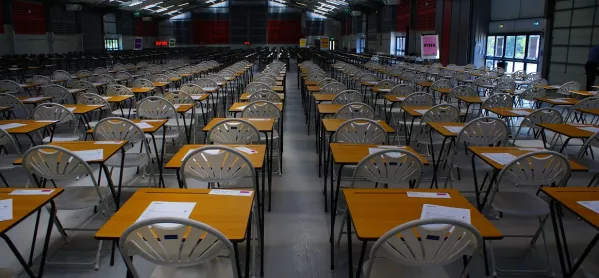Changes to GCSE grades and school league tables are expected to lead to tens of thousands more students taking English and maths resits next year.
Across all age groups, this summer there have been 1.4 million entries in the two subjects - with almost 230,000 of these being from college students. And the challenge is set to get even tougher in the next academic year.
This summer saw both the first cohort of students sit the reformed GCSEs (graded from 9-1) and the final cohort take resits under the legacy version of the qualifications (graded A*-G).
In April, the Education and Skills Funding Agency confirmed that the condition of funding for post-16 institutions for 2017-18 would effectively make resits compulsory for students who obtained a grade 3 or D in either of the subjects. And figures released by Ofqual suggest that colleges are set to face a significantly larger resit cohort.
There are two reasons for the expected increase. Firstly, the change in the grading system is expected to result in more entries being awarded a grade 3 than previously received a D. According to Ofqual predictions, the proportion is expected to increase from 19 per cent of English entries by 16-year-olds obtaining a D in 2016 to 23 per cent obtaining a 3 in 2017; the proportion in maths is predicted to increase from 15 per cent to 17 per cent during the same period.
Secondly, the number of GCSE English entries has increased by 241,000. This is down to the end of combined English (language and literature) under the reformed qualifications, and the fact that IGCSEs are no longer included in school league tables, prompting many to switch back to GCSE English.
‘Colleges will rise to the challenge’
Catherine Sezen, senior policy manager at the Association of Colleges, said that the extent of the growth in the resit cohort for 2017-18 was not yet clear, but colleges were planning for a sizeable increase.
“Colleges are aware of that, and they are preparing for it,” she said. “As always, colleges will rise to the challenge. They will have been planning for additional numbers and potentially more GCSE courses, along with fewer functional skills courses.
“Does it put pressure on colleges? Yes, because it puts pressure on them in terms of staff … You are delivering more hours to those students who would have previously been taking functional skills. And at exam time there will be logistical issues.”
‘Crippling an already beleaguered sector’
The resit cohort at West Suffolk College has remained stable this summer with 1,285 resit entries, according to vice-principal for curriculum and quality Lindsey Johnson. But with numbers expected to rise in September, the college is recruiting two additional GCSE maths teachers and one teacher of English.
Ms Johnson called on education secretary Justine Greening to relax the condition of funding rule to “enable the FE sector to choose the most appropriate maths and English qualification for students”.
“Whilst laudable, it is crippling an already beleaguered sector and, more importantly, it is demotivating a significant proportion of young people who require technical maths and English skills,” she added.
The AoC also backs a change in the resits policy. “We still believe that the condition of funding means that not every student’s needs are being met,” Ms Sezen said.
“We need more flexibility. For some students, it becomes a real barrier to engaging with the rest of their curriculum, because they have had such a negative experience [at school].”
A Department for Education spokesperson said it does “not expect the new grading system to have a significant effect on the numbers of pupils reaching or falling below the expected standard”.
This is an edited version of an article in the 14 July edition of Tes. Subscribers can read the full story here. To subscribe, click here. To download the digital edition, Android users can click here and iOS users can click here. Tes magazine is available at all good newsagents.
Want to keep up with the latest education news and opinion? Follow Tes FE News on Twitter, like us on Facebook and follow us on LinkedIn





